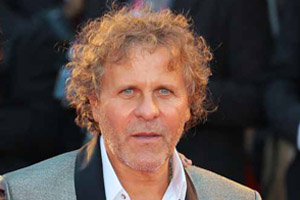
Johan Meyer, CEO Franklin Templeton Investments Limited Bucharest Branch
“I wouldn’t be here if I wasn’t optimistic about the future. It’s a very good moment for Romania”
Established in 2005 as a means to compensate the people whose assets had been confiscated by the Communist regime and couldn’t be returned in kind, Fondul Proprietatea (FP) is now a key player on the Romanian capital market. Few would have bet that FP would become one of the world’s largest listed funds with a net asset value of $2.93 billion as of January 2018. Ever since Franklin Templeton Investments Limited (FTIML) took over the management of the Fund (September 2010), FP has seen two listings on the stock exchange – in Bucharest (January 2011) and London (April 2015). As CEO and Portfolio Manager of FP, Johan Meyer is one of the best qualified people today to explain how this success story was possible and how the future of the Romanian capital market looks like.
How did a South African get to manage a $2.9 billion investment Fund in Romania?
I grew up in Benoni, a town east of Johannesburg, South Africa. I studied Economics at University of Pretoria, and while still in school I interviewed for a research assistant position with the Templeton Emerging Markets Group (TEMG). The interviewer asked: “What would you do at your ideal job?” My response was: “play golf.” A terrible answer to give a potential employer, and at the time I didn’t even play golf!
Still, I drove away from that office thinking I was a fool who had blown my chance. But I must have recovered from that rocky start, because I got a call for a follow up interview and shortly after that I joined the TEMG, based in Johannesburg at the time. The next few years I spent analyzing markets and companies in sub-Saharan Africa, and in 2008 I was part of the team that launched and managed the Templeton Frontier funds. It was an exciting time as the global financial crisis gave us the opportunity to buy good quality stocks cheaply, and we also had the chance to travel to many fascinating places.
My first visit to Romania was in 2010, shortly after FTIML was awarded the mandate to manage Fondul Proprietatea. In November 2016, my family and I moved to Bucharest, so I could take on this new role as Co-Portfolio Manager for FP and Co-CEO of FTIML Romania, now sole CEO.

Was adjusting to life in Romania difficult?
From a professional point of view, it was really easy. I have been working for FTIML for about 14 years now, and I have the advantage of having worked alongside my colleagues in the Romanian office for almost 8 years at this stage. There is a great deal of comfort and familiarity between us and I am very proud of our team in Bucharest.
From a personal point of view, it takes more adjustment especially as far as the climate is concerned. I remember last winter when the thermometer showed minus 18 degrees Celsius in Bucharest it was plus 18 in Cape Town at the same moment. But it’s only a matter of time before one gets settled in and now, a year since we arrived here, my family has already begun to feel at home in Romania. We are here and we have committed our future to this country.
What’s specific to Fondul Proprietatea when compared to other investment funds?
Initially set to compensate Romanians who lost properties during the Communist regime, FP’s portfolio assets are primarily minority stakes in Romanian state-controlled enterprises. The Fund only invests in Romania and the bulk of investments go into the energy sector, oil and gas, electricity generation, but also infrastructure, financial services, and others.
Fondul owns minority stakes in Romania’s first three electric power producers, Hidroelectrica, Nuclearelectrica and CE Oltenia, in OMV-Petrom, in strategic transport infrastructure companies (Bucharest Airports, Timisoara Airport, Portul Constanta and other Danube ports), in Posta Romana, the national salt producer Salrom, in top banks (BRD) and other smaller sized companies.
From an investor’s perspective, what’s most appealing about the Fund?
FP gives unique exposure to a country that has one of the highest growth rates in the EU and buying shares in the Fund gives investors an opportunity to obtain access to this market at a significant discount to the actual asset value. Also, in addition to being listed in Bucharest, it is listed in London, which opens the Fund to numerous other investors which are specialized in closed-end investment funds.
Has Franklin Templeton’s management of FP changed anything for the better?
Without false modesty, if we look at the figures, we could categorically say so. If we consider 19 of the most important companies where the Romanian state is the majority shareholder and Fondul has a minority stake, earnings before interest, tax, depreciation and amortization almost doubled to 5.27 billion lei ($1.33 billion) in 2016 from 2.69 billion lei in 2012.
Thanks to our efforts, the management of these companies has improved over the past years. We have been very strong advocates for improving corporate governance in portfolio companies, so we helped with drawing up the corporate governance legislation back in 2011. These legal provisions have proven very effective; unfortunately, the legislative changes that we witnessed last December were a huge step back in time for these companies and the country as a whole. The Parliament voted to exempt some 100 companies from the Corporate Governance Law, making it ineffective.
These amendments can only be regarded as a flagrant lack of consideration paid to the far-reaching implications this will have on the financial markets and the well-being of these companies. These amendments are nothing but an intention to protect and enrich the few at the expense of Romania in general. Fortunately, the law has not been implemented yet, because the Constitutional Court declared it unconstitutional.
Throughout 2017, and especially in the summer, there have been some articles reporting that Fondul Proprietatea is “at war” with different ministries and ministers. What lead to such a perspective of the media?
I wouldn’t describe as a “war” some divergent perspectives which normally occur in any democratic society and business relations. You may have seen in the press that, as minority shareholders in various state-owned enterprises we have been very active in terms of court cases, in an effort to protect the value of FP shareholders. The risk to us is not only that that we may see lower profits on the short term. We are investing in these companies on the long term and what is happening currently is that the corporate governance legislation is circumvented and interim board members and managers have been appointed to these companies.
They are in no position to develop long term strategies, neither to execute such strategies. So interim mandates are something we are fighting hard against. Corporate governance and the importance of the rule of law are critical to us and other investors – this is why we insist on it being adhered to.
Throughout my experience, I’ve seen how big an impact a badly managed state-owned enterprise can have on a country’s economy. I don’t want to see this happen to Romania. At Fondul, with stakes of around 20 percent in some key state-owned enterprises, we have to be activists. We must stand on our rights and principles, or ultimately it is the man on the street, each taxpayer, who is affected by a state-owned company’s lack of profitability.

What does an activist shareholder, a “specialty” of Franklin Templeton, do?
In most of the portfolio companies we have either colleagues from our investment team or independent members proposed by us sitting on the supervisory boards. This presence has made an enormous impact on the professionalism and transparency of these companies. Furthermore, we try to keep an active dialogue with company management and the overseeing ministries, encouraging them to operate in a way that is beneficial for all their stakeholders.
If that doesn’t bring the desired results, we raise these issues in the public domain. We’ve been doing numerous interviews and issuing press releases to highlight some of the issues. In this day and age we are also making use of social media to distribute our messages – we have found that this reaches a wide range of interested parties. If all of this doesn’t work we’ve shown that we’re not afraid to start litigation, in order to protect the well-being of the portfolio companies.
That being said, I wouldn’t be here if I wasn’t optimistic about the future. It’s a very good moment for Romania. There is low unemployment, good economic growth and low inflation. All these have led to a rapidly growing consumer economy. It’s crucial that the Government maintains stable legislative and regulatory frameworks, so that investors feel safe putting their money here to participate in this growing economy.
For FP, our most pressing issue is protecting the value of the portfolio companies. After that we need to help companies grow their value, install independent supervisory boards and management teams that are ready to execute long-term plans. So, we have a lot more activism ahead of us in the future.
Are political evolutions susceptible of turning foreign investors away from Romania?
We certainly wish that won’t be the case. The first thing that we need for preventing negative consequences for Romania’s attractiveness to foreign investors would be a quick resettling of the corporate governance provisions. Furthermore, sustainable development of the Romanian capital market is inconceivable without the further listings of stakes in large state owned companies such as those in our portfolio. For these listings to have any chance of success the companies will have to demonstrate the implementation of corporate governance legislation in order instill confidence in potential investors
Secondly, we need is greater stability and predictability in the political arena. These guys are there to create a legislative framework. If you have a new guy coming in every 8 months or so, there’s no stability, no continuity. Everyone comes with their own agenda, with their own team and end up chasing their own tails.
What makes Romania attractive in the region from an investment perspective?
In a regional context, Romania has a capital market with untapped potential, but it’s still relatively small and if we had political will and cooperation, we believe there would be a potential of an upgrade to Emerging Market status.
What are the benefits that the status upgrade would bring? If you look at the valuations, at the size of companies, in general, Romanian companies trade at discounts that are significantly higher than peers from Emerging Markets, dividend yield is higher – which should be attractive to both domestic and international investors. Given the lack of liquidity on the market, it’s very difficult for investors to get in a sizeable manner.
Is there a recipe for growth that the Romanian capital market could use?
Without a doubt, an increase in the number of listings would benefit the Romanian capital market. Whether it is Hidroelectrica, Bucharest Airports, Salrom, or Constanta Port, IPOs would provide a significant boost to the capital market in terms of diversity and also overall size. It would raise the profile of Romania in the eyes of the world and bring more foreign investment, which means, from an economic point of view, there’s less pressure on the currency, as investors are buying lei.
At the moment, if pension funds don’t have enough opportunities here, they will have to invest in Hungary or Poland or elsewhere in the region. So the money of Romanian contributors will help grow companies in other countries, instead of helping the Romanian economy.
As millions of people have left Romania in search of professional opportunities, I’d end the interview asking: Wouldn’t you rather be somewhere else than in Romania?
Significant workforce migration will probably be more and more common in a globalized economy, yet, if I were to refer strictly to myself, I’d say it is a great opportunity for me to work in Romania in such a crucial period in the development of its capital market, just as the building blocks are being laid for an upgrade from Frontier to Emerging Market status, and I am very grateful for the opportunity to be a part of it.









